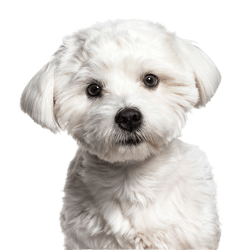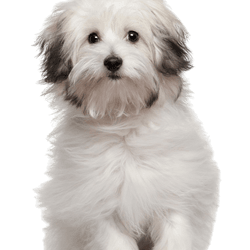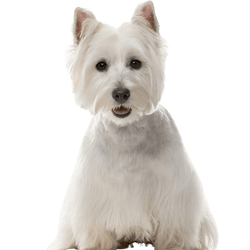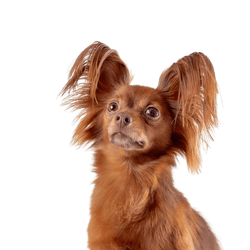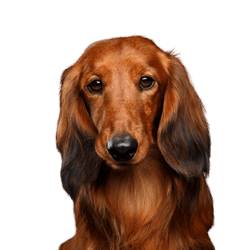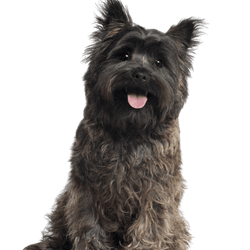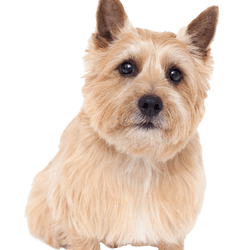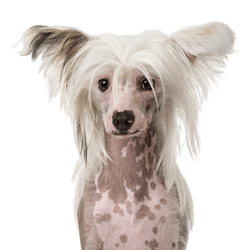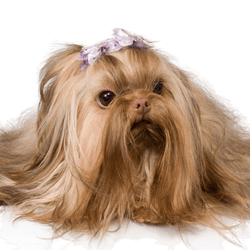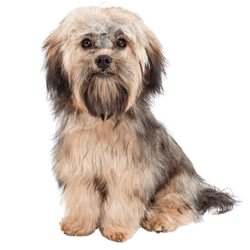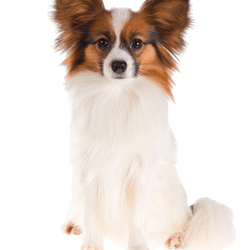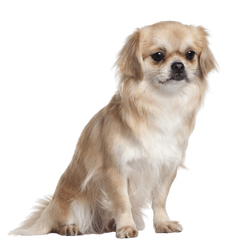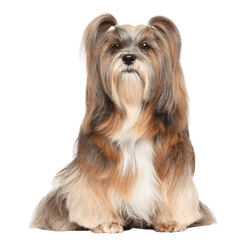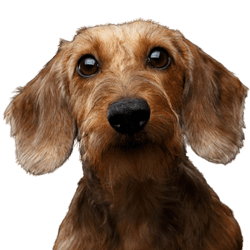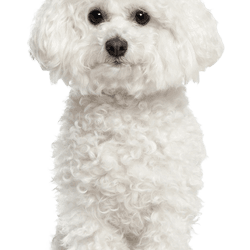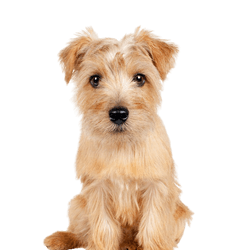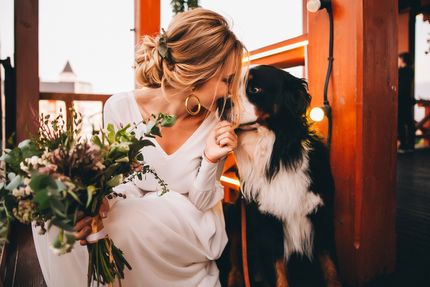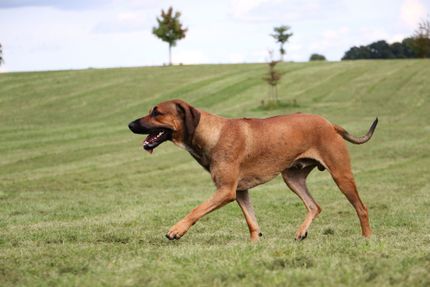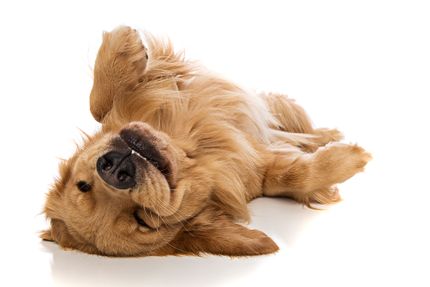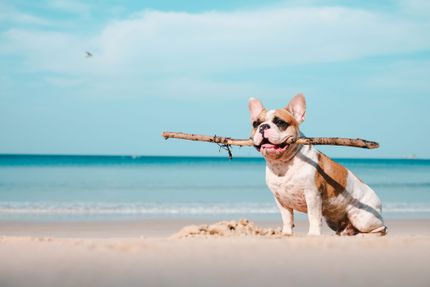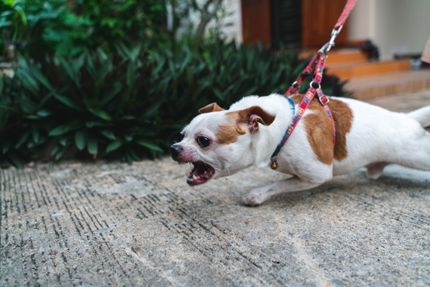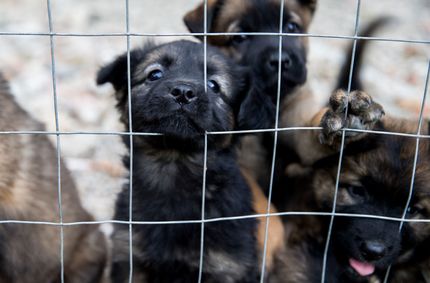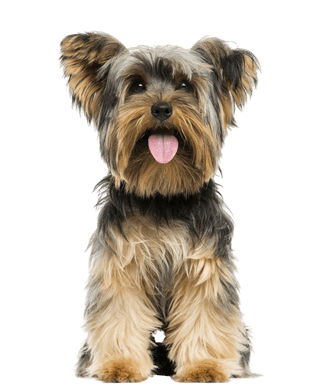
Yorkshire Terrier Breed description: Character & Co
Yorkshire Terrier
Facts & Origin
If you want to buy a Yorkshire Terrier, you are interested in a small dog breed. These adorable four-legged creatures reach a maximum height of 23 cm and a maximum weight of 3.2 kilograms. However, these small dogs are more than just lap dogs. Yorkshire Terriers are fearless and brave furry friends that can be very self-confident and independent.
Where do Yorkshire Terriers come from?
Already in 1886 the Yorkshire Terrier was registered in the so-called Kennel Club stud book. The origin of this dog breed is England. The former use of this small dog breed is especially interesting and says a lot about the present character and traits of these small dogs.
The Yorkshire Terrier was bred as the poor man's hunting dog. At that time it was forbidden for serfs and the common poor people to hunt in England. Therefore, this population group was allowed to own only very small dogs, which would not be suitable for hunting. This was also controlled regularly and only dogs that could jump through a hoop of only 18 cm were allowed to be kept by these people.
People made a virtue out of necessity and smaller and smaller dogs were bred, which were very well suited for hunting, but looked like a lapdog. This resulted in the birth of the Yorkshire Terrier.
In 1885, Huddersfield Ben, the progenitor of all Yorkshire Terriers, was born. He was created as a cross between the breeds Paisley-Terrier, Waterside-Terrier and Clydesdale-Terrier and already then had the typical longer coat with its bluish shimmer and tan-coloured markings on the head.
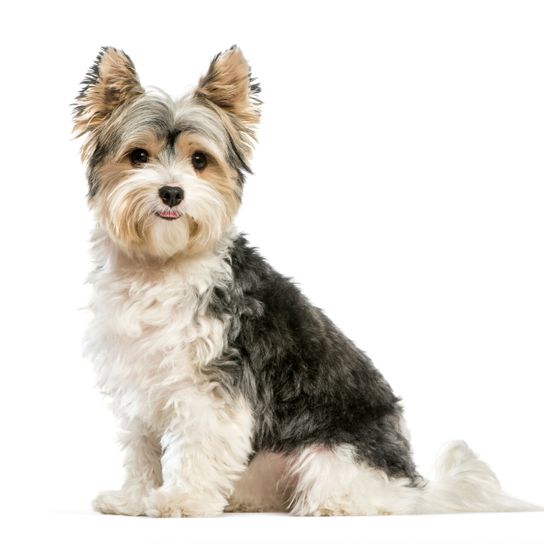
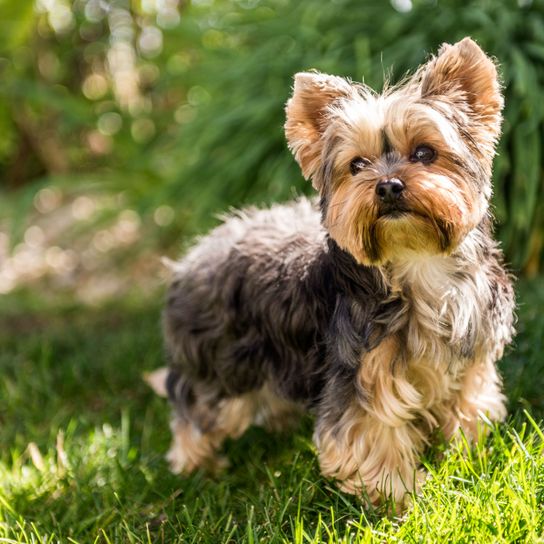
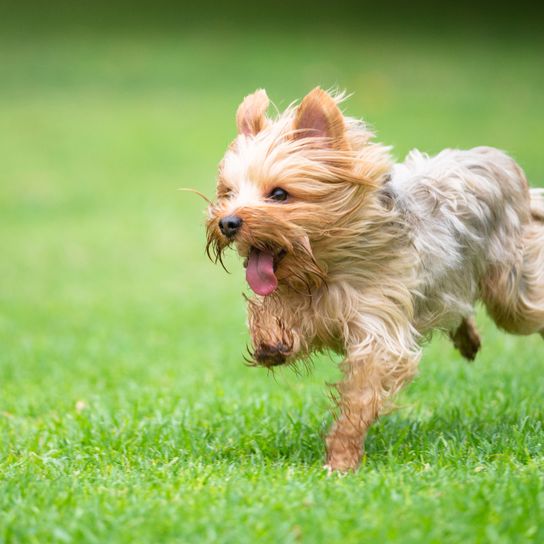
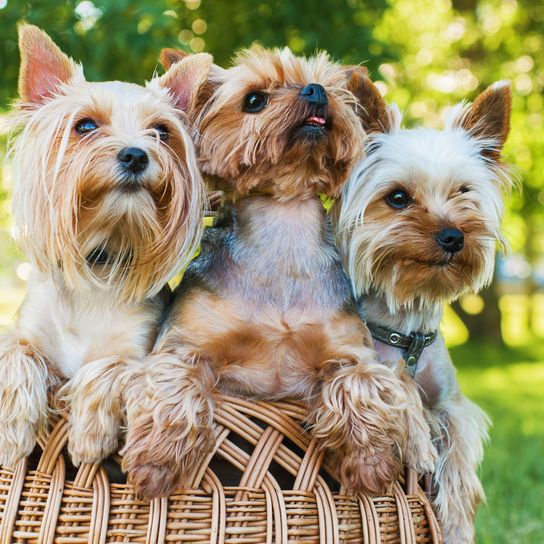
| Alternate Name | Yorkie, Yorkshire Terrier |
| Origin | UK |
| Life expectancy | 13 - 16 years |
| Care requirements | high-maintenance |
| Activity level | low |
| FCI group | Toy Terriers |
| AKC group | Toy Group |
| KC group | Toy Group |
Yorkshire Terrier mixes
Attitude, character and temperament of the breed
What are the typical character traits of the Yorkshire Terrier?
You will always be able to tell that the Yorkshire Terrier is a hunting dog in disguise. Yorkshire Terriers are:
- intelligent
- vibrant
- cheerful and
- curious
These little four-legged friends are also very alert and will announce strangers approaching the house with great enthusiasm. Yorkies are fast and agile and often catch mice and rats faster than cats would.
Yorkshire Terriers are also especially fearless and are not afraid of strangers or big dogs. There lies a very courageous behavior inside these small dogs, so it is very important that you train them in a lovingly, but consistent way. Also it does not hurt to attend dog school with a Yorkshire Terrier puppy.
Character
Usage
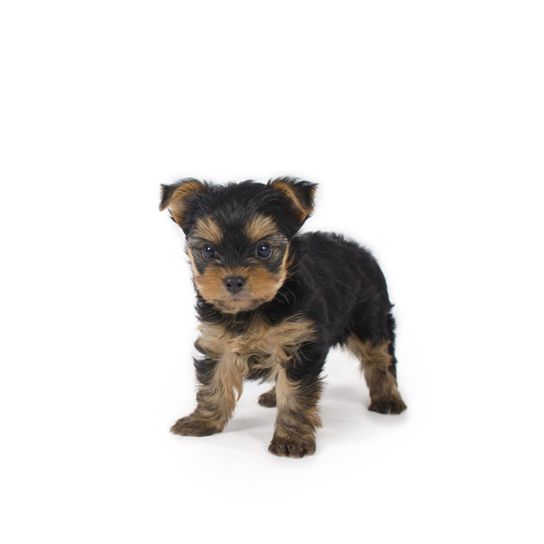
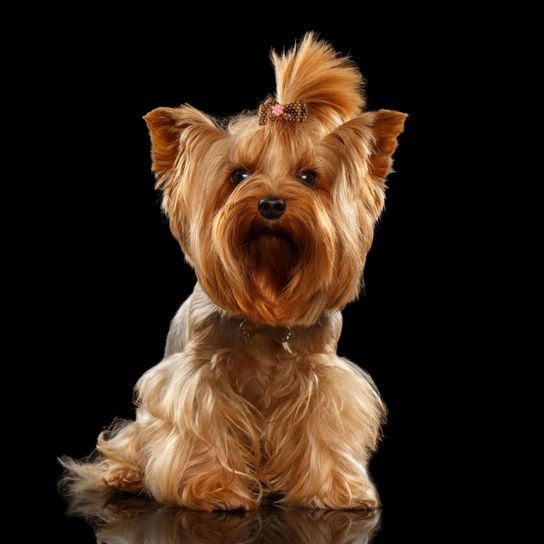
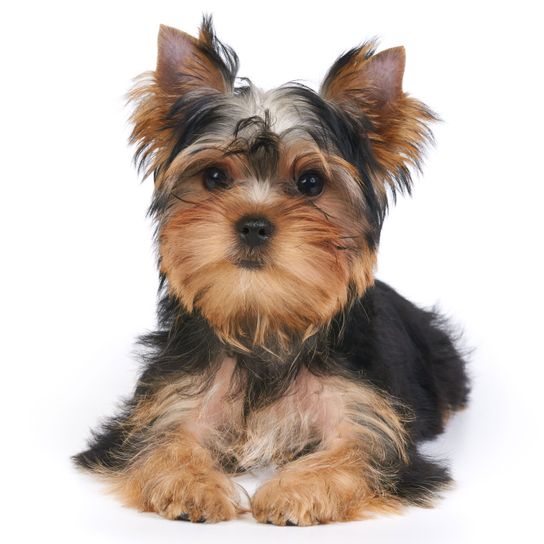

Health and breeding information
What are typical Yorkshire Terrier diseases?
Typical, breed related diseases of the Yorkshire Terrier are
- injuries of the kneecaps or
- patella dislocations.
- Various eye diseases are just as common among these dogs as
- hereditary bronchitis or
- Lymphangiectasia.
The so-called dwarfing is also a problem of the Yorkshire Terriers. Even smaller specimens are still being bred, as it is considered modern. However, this is called torture breeding, which is actually prohibited. So-called Mini-Yorkies, which were bred to be extremely small, also have a significantly lower life expectancy. Therefore, it is important that you put your trust in a responsible Yorkshire Terrier breeder.
What should be considered when breeding Yorkshire Terriers?
The most important thing is that only breeders that inform themselves abut the animals' genetics are allowed to breed dogs. Everything else is pure reproduction and has nothing to do with breeding.
Only healthy parents who have been tested for various hereditary diseases should be mated with each other. Also you have to pay attention to fresh bloodlines, because also inbreeding provides health risks for the four-legged friends. In general, the male must always be smaller than the female, otherwise dramatic complications can occur during birth.


What are the breed characteristics of a Yorkshire Terrier?
The most striking breed characteristic of the Yorkshire Terrier is its small size and light weight. They listed as a Terrier of group 3 by the FCI and as a Dwarf Terrier in section 4.
A dog from a good Yorkshire Terrier breeding has a very fine and long coat. This should hang down smoothly and evenly on both sides.
The body of these small dogs is compactly built, robust and well proportioned. The skull is flat and the ears are V-shaped. The eyes are medium sized and dark. The tail has a lot of hair and is carried above the backline.
Appearance and coat of the Yorkshire Terrier
The silky, straight and long hair falls down on their left and right side in a neat parting. It runs evenly from the tail to the nose of the animal. Especially at the muzzle, the coat should also be especially long. Often the hair is tied together with a bow on the head, so that the hair does not hang into their eyes. The coat of these dogs must always be silky sheen. Therefore, regular coat care is also of great importance. In addition to that, by providing them with an appropriate and healthy diet you can ensure that your Yorkshire Terrier always has a silky and shiny coat.
The typical coat colours of the Yorkshire Terrier are blue and tan, black and tan blue, gold and white and may show so-called black marks.
How big does the Yorkshire Terrier grow?
The male reaches a height of about 23 cm and bitches usually reach an average shoulder height of 20 cm.
How much does a Yorkshire Terrier weigh?
Yorkshire Terriers usually weigh a maximum of 3.2 kilograms. As these dogs are very cute and also like to beg, there is a high risk that you overfeed your Yorkie. Therefore, you should also supervise the nutrition of these small dogs regularly. Being overweight comes with enormous health risk, also for Yorkshire Terriers.
What is the average lifespan of a Yorkshire Terrier?
A Yorkshire Terrier will reach an age of 14 to 16 years if kept in a species-appropriate way, provided that it also comes from a healthy and responsible breeding. If you take in a Yorkshire Terrier home, you must be aware of this long-time responsibility.
| Fur length | medium |
| Fur | flat coated |
| Ear shape | Standing Ears |
| Tail | short |
| Anatomy | slim, square |
| Size ♀ | 16 - 17 cm |
| Weight ♀ | 3 - 4 kg |
| Size ♂ | 16 - 17 cm |
| Weight ♂ | 4 - 5 kg |
| Suitable For | Beginner, Seniors |
Colors
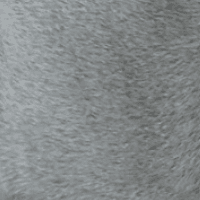
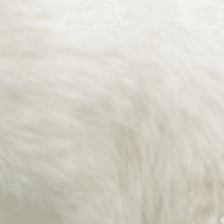
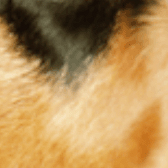
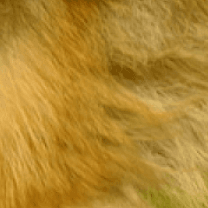
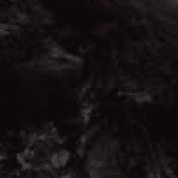



Known Diseases
Eye infections
Chronic eye infections can be very painful in dogs and can be treated with medication. In rare cases, the cornea must be treated.
Bronchitis
Bronchitis in dogs is an inflammation of the lower airways in the area of the bronchi.
Patellar problems
Problems with the Patellar can be a displacement or weak kneecap, which is one of the most common causes of lameness in dogs, also because of overweight.
Dislocations
Lenticular and patella luxation occur in some breeds and affect the eye.
FAQ
-
Under bad education almost every dog can become a barker. The small terriers are always eager to bark, but through a lot of training this is not absolutely necessary.
-
Yorkshire Terriers are very playful. Therefore, a calm or also playful breed fits well with the terrier. An over-excited, extremely demanding breed is less suitable, as the two animals would incite each other. For example, a Labrador or other small breed fits well.
-
Yes, the terrier is a good family dog.
-
A purebred dog costs about 1600-2500 Euro.
Other small dogs
Useful Articles
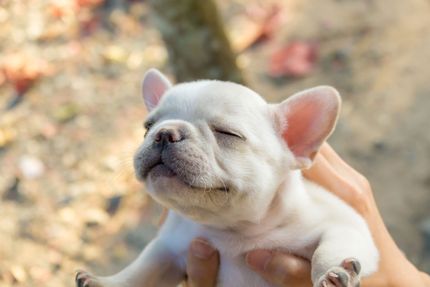
You can find articles that might interest you in the dogbible blog to match your favorite breed.
Visit our magazineto stay up to date on dog trends.
To find out more, view our Privacy Policy
Find here the breed that suits you and find out what character traits it has. Here you can also learn more about the origin, size and weight of your favorite breeds.
Matching your favorite breed, you'll find articles that might interest you on the dogbible dog blog.
Dog kennel: building, buying, advantages, tips
Holiday with dog Baltic Sea - these tips you should know in advance!
Diabetes in dogs - Detect and treat diabetes in your dog
Tattoos with dog theme: We have the cutest net finds for you





